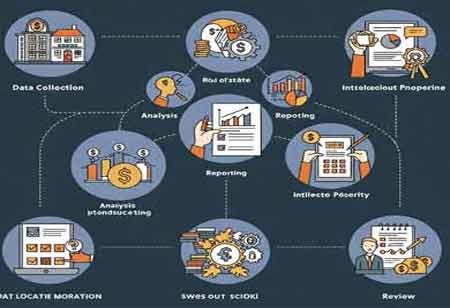CLOSE
Specials
- Payment Solution
- Financial Risk Management APAC
- CPA Firms Canada
- Investment Banking APAC
- Corporate Advisory APAC
- Regtech APAC
- Escrow Services
- Digital Banking Latam
- Trading Solutions APAC
- Treasury Management Europe
- RegTech Europe
- Financial Risk Management Europe
- Mortgage Broker
- Financial Licensing Europe
- RIA Advisory Europe
- FinTech Canada
- Financial Asset Management APAC
- Investment Banking Canada
- Financial Marketing
- Wealth Management MENA
- Investment Advisory APAC
- Investment Advisory Europe
- Financial Brokerage Firm APAC
- FinTech
- Wealth Management
- Proprietary Trading Europe
- Lending mangment
- Financial Health Europe
- Investment Management Latam
- Financial Fraud
- Alternative Investments Canada
- Broker Dealer Firms Canada
- Payment Solution Europe
- Lending Mangment Latam
- Claim Adjusting
- Claim Adjusting APAC
- Mergers and Acquisitions Consulting APAC
- Equipment Financing
- CPA Firms
- Mergers and Acquisitions Consulting Canada
- Investment Services
- Valuation Services Canada
- Wealth Management APAC
- Broker Dealer Firms
- Debt Collection Agencies
- Mergers and Acquisitions Consulting
- FinTech Europe
- Fintech Latam
- Financial Planning / Retirement
- Investment Management
- Financial Compliance
- Digital Banking Europe
- CFO Services
- Debt Collection Agencies Europe
- Wealth Management Europe
- Mergers and Acquisitions Consulting Europe
- Financial Restructuring Europe
- Financial Portfolio Management Canada
- Business Loan
- Payment and Card Latam
- Wealth Management Latam
- Mergers and Acquisitions Consulting Latam
- Tax Advisory Canada
- Trading Solutions Europe
- Alternative Investments
- Digital Insurance Europe
- Investment Services Latam
Weekly Brief
×Be first to read the latest tech news, Industry Leader's Insights, and CIO interviews of medium and large enterprises exclusively from Financial Services Review
Thank you for Subscribing to Financial Services Review Weekly Brief
The New Standards In Payment Gateway Platforms
The digital economy’s rapid evolution has been significantly bolstered by advancements in payment gateway platforms.

By
Financial Services Review | Tuesday, October 01, 2024
Stay ahead of the industry with exclusive feature stories on the top companies, expert insights and the latest news delivered straight to your inbox. Subscribe today.
The digital economy’s rapid evolution has been significantly bolstered by advancements in payment gateway platforms. As businesses increasingly move online, the demand for efficient, secure, and user-friendly payment processing solutions has grown exponentially.
A notable trend in the payment gateway industry is the shift towards integrated payment ecosystems. These ecosystems bundle payment processing with other valueadded services like invoicing, subscription management, fraud prevention, and analytics. Companies such as Stripe and Square have pioneered this model, providing businesses with a comprehensive suite of tools that go beyond mere payment processing. This approach not only simplifies operations for businesses but also creates a seamless experience for endusers.
The Buy Now, Pay Later (BNPL) trend has exploded in popularity, particularly among younger consumers. Payment gateways have been quick to adapt to this trend by integrating BNPL options into their platforms. Companies like PayPal, Afterpay, and Klarna have become household names in this space, allowing consumers to split their purchases into interest-free installments.
BNPL solutions appeal to consumers for their flexibility and lack of interest charges, making them an attractive alternative to traditional credit cards. For merchants, offering BNPL options can increase average order values and conversion rates, as consumers are more likely to make purchases when they can spread out payments. Payment gateways are thus increasingly incorporating BNPL services to stay competitive and cater to consumer demand.
With the rise of digital transactions, security concerns have become more prominent than ever. Payment gateways are continually innovating to stay ahead of fraudsters, employing advanced technologies like artificial intelligence (AI) and machine learning (ML) to detect and prevent fraudulent activities in real time.
One significant development in this area is the use of AI-driven fraud detection systems that analyze transaction patterns and flag suspicious activities. These systems are becoming increasingly sophisticated, capable of learning and adapting to new fraud tactics as they emerge. Additionally, the implementation of multi-factor authentication (MFA) and tokenization—where sensitive payment information is replaced with a unique identifier or token—has become standard practice in the industry.
Payment gateways are also working on complying with stricter regulatory requirements, such as the European Union’s Payment Services Directive 2 (PSD2), which mandates strong customer authentication (SCA) for online transactions. These enhanced security measures are crucial for building consumer trust and ensuring the continued growth of the digital payment ecosystem.
Cryptocurrency is no longer a niche interest but a burgeoning sector of the global economy. Payment gateways have started integrating cryptocurrency payment options to cater to the growing number of businesses and consumers who prefer to transact in digital currencies like Bitcoin, Ethereum, and stablecoins.
Companies like BitPay and Coinbase Commerce have been at the forefront of this movement, providing merchants with the ability to accept cryptocurrency payments seamlessly. Traditional payment gateways are also entering the space; for example, PayPal now allows its users to buy, sell, and hold cryptocurrencies directly through its platform, and it has plans to enable cryptocurrency payments at its network of 26 million merchants.
The integration of cryptocurrencies into payment gateways presents both opportunities and challenges. While it opens up new markets and customer segments, it also requires gateways to manage the volatility and regulatory complexities associated with digital currencies. However, as the use of cryptocurrencies becomes more mainstream, we can expect more payment gateways to expand their offerings in this area.
Open Banking, which involves the use of open APIs to enable third-party developers to build applications and services around financial institutions, is transforming the payment gateway landscape. This movement towards greater transparency and interoperability is being driven by regulatory frameworks like PSD2 in Europe and similar initiatives in other regions.
Open Banking allows payment gateways to offer more personalized and efficient services by leveraging customer data with their consent. It also fosters innovation by enabling new entrants to develop competitive payment solutions. For instance, companies like Plaid are leading the way in providing the infrastructure that connects banks with payment gateways, allowing for direct bank-tobank transfers that are faster and cheaper than traditional methods
The adoption of Open Banking is expected to accelerate, as consumers and businesses increasingly demand more control over their financial data and the ability to choose from a wider range of payment options.
User experience (UX) has become a critical differentiator in the payment gateway industry. As competition intensifies, platforms are focusing on providing a seamless, intuitive, and customizable experience for both merchants and consumers.
Payment gateways are increasingly offering customizable checkout experiences that can be tailored to match a merchant’s brand identity. This includes options for personalized invoices, multiple language and currency support, and localized payment methods. The goal is to reduce friction during the checkout process, thereby minimizing cart abandonment rates and enhancing customer satisfaction.
As e-commerce continues to break down geographical barriers, payment gateways are focusing on facilitating cross-border transactions. This involves offering support for multiple currencies, localized payment methods, and compliance with various regional regulations.
The payment gateway platform space is undergoing significant transformation, driven by technological advancements, changing consumer preferences, and regulatory developments. The shift towards integrated payment ecosystems, the rise of BNPL, enhanced security measures, cryptocurrency integration, and the adoption of Open Banking are just a few of the trends shaping the future of digital payments.
As businesses continue to navigate the complexities of the digital economy, staying informed about these developments will be crucial for selecting the right payment gateway and ensuring long-term success. The focus on user experience, global expansion, and social responsibility further underscores the importance of a holistic approach to payment processing in today’s interconnected world.

Copyright © 2025 Financial Services Review. All rights reserved





